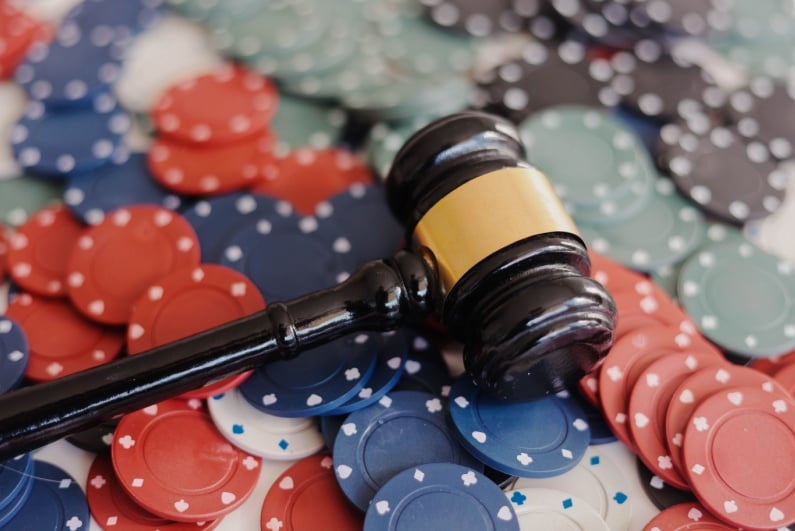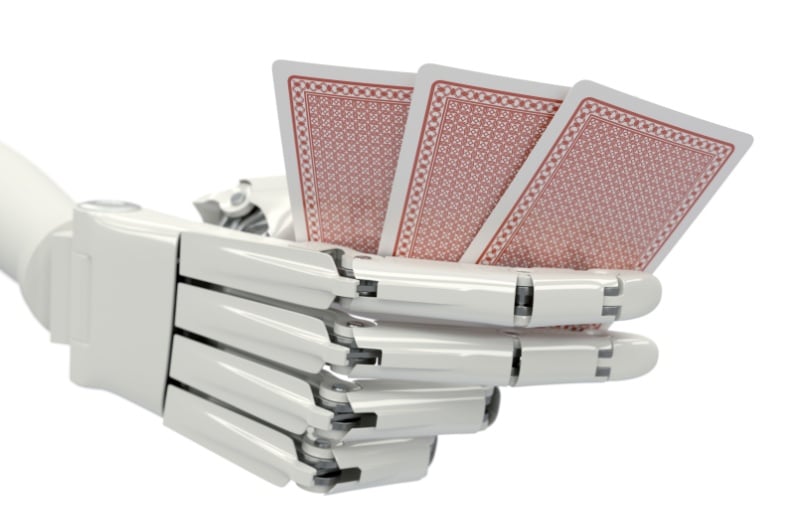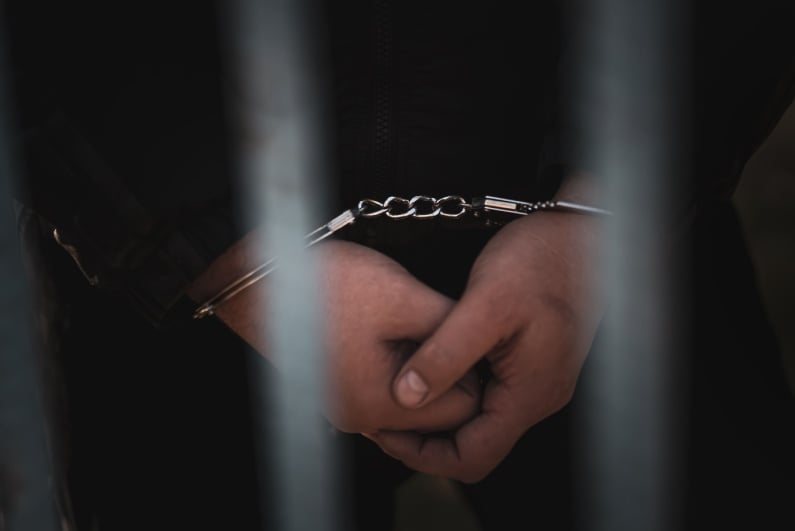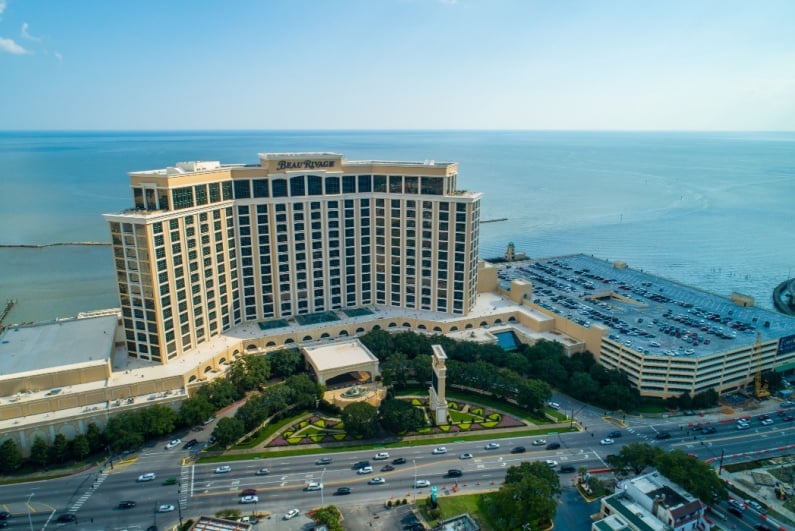House rules
The World Series of Poker (WSOP) begins in exactly one week, so those planning to play some events would do well to familiarize themselves with the new rules. A few of them are procedural, like where the button goes at the start of play and with three tables, two tables, and one table left. It’s also about the technicalities around dead buttons.
Rule 86 used to say that blind-dodgers would incur a penalty
Others clarify the language of existing rules, for example ‘dodging the blinds.’ Rule 86 used to say that blind-dodgers would incur a penalty but now it states:
“A Participant who intentionally dodges his or her blind(s) when moving from an existing seat must forfeit both blinds (and BBA if applicable) and will receive a one (1) round penalty.”
Similarly, Rule 16 now states that if you register and don’t arrive to your seat until after the first official break, your stack will be removed from play. While the player’s buy-in will be refunded, he/she will not be eligible to compete in that event.
New rules
Then there are the more serious rules, which can lead to disqualification. Rule 18 allows the WSOP to ban players before, during, and after a tournament for reasons such as cheating and abusive behavior. That seems uncontroversial. What is sure to cause some consternation, however, is the WSOP’s new policy, which states:
“Once Participants have reached the final three tables in any Tournament, all approved electronic devices must be removed. An announcement will be made to Participants once they have reached the final three tables to remove all such electronic devices. Failure to do so will result in penalties up to and including disqualification.”
This policy change somewhat overlaps with the big one – Rule 116 (the Tamayo Rule?) – which says that players are no longer permitted to discuss strategy with an outside source “at any time while the tournament clock is running, and participants are not on break.” The consequence of this is that a player can now only legally get coaching while in a tournament this year whilst on a break.
policing the rule will be a nightmare for the staff
There are two problems with this rule as written. The first is the reference to the tournament clock which means that semantically it could be argued that during hand for hand play when clocks are paused, strategic advice could be dispensed. The second is that policing the rule will be a nightmare for the staff who will have to decide if a player being whispered to by his rail is receiving strategy nuggets or dinner plans.
Mob rule
In Part 1 of my 2025 WSOP series, I assembled some of my favourite poker Avengers to discuss the best and worst aspects of the WSOP. In Part 2, my illustrious mob will be tasked with using their imaginations as I ask them about some hypothetical rule changes that either have been floated by others or previously resided only inside my own head.
The WSOP has just banned all phone use at the table from three tables out. If they brought in a rule banning phones for the entire duration of the tournament, would you play?
Brad Owen: I don’t like this idea at all. I’d probably have more success, but I’m constantly on my phone posting updates on Instagram and staying in communication with family and friends. Poker can sometimes be a bit boring as well so I use my phone as a source of entertainment to either look online and/or listen to music. I would be heavily dissuaded from playing an event that implemented a ban on phones.
Vanessa Kade: I would still play but it would be a lot harder for me. I try not to look at my phone much while playing but I’ve got ADHD and don’t take medication for it. Music helps me stay a little more calm and focused so it would be a detriment, but yes I’d still play. It would be nice if this rule didn’t apply to something like an old school nano-pod with no communication potential. (Author’s note: I have it on good authority that Vanessa has a Sony Walkman).
Kevin Rabichow: I think a phone ban would be great, but I worry about logistics, especially in a huge field event. Where is my phone being kept? Can I access it on breaks? Are we playing a 16-hour day without my phone, or an 8-10 hour day? My enthusiasm for the rule would depend on these variables, because it’s impractical to commit to playing weeks of long days in a row without predictable access to my phone.
Ian Simpson: Yes. Phones are so powerful now, and the scope for cheaters to use cameras or communicate information from the rail makes them a real danger to game integrity. It frustrates me when operators don’t do more about it.
Maria Konnikova: Absolutely, yes, yes, yes. Ban phones. Do it. Allow us to keep them in our bags and check them on breaks or fully away from the table, but ban them at the tables, for sure.
Fabian Bartuschk: I probably would not play. For entertainment reasons, they’re much needed, especially on Day 1s.
Dan Wilson: Hell yes! I’d prefer it!
Kyna England:
Yes I’d play but I wouldn’t be happy about it. I like to text friends and listen to music.
Soheb Porbandarwala: Yes. Can we have them on breaks, though? Being out of touch from family for 14 hours at a time could be problematic.
Matt Affleck: Yes I would still play but that’s a dumb rule!
Andy Wilson: I’m not sure that I’d be able to handle playing 10-handed 1Ks at the Horseshoe if I wasn’t able to be on my mobile consuming brain-rot content so I think that this would be a little extreme.
Angela Jordison: I would still play. I need a break from my phone and it’s never gonna happen unless they force me.
TJ Reid: Yes, I would still play. That would probably have a greater effect on recreational players.
Andrew Hedley: Yes, I would still play. If anything it could only be a net positive as it would force the wandering mind to keep focused and present. The only major negative for me would be keeping in touch with family in case of emergency.
Aaron Barone: Sure. It’s not like the reception in all of the rooms is top notch, anyways.
Dara O’Kearney: Yes. At the very least it would prevent me from getting David Lappin hand histories.
Jen Shahade: Yes, absolutely but then I’d much prefer a slightly shorter day! We’d get more hands in with no phones to distract anyone.
If a player was found guilty of cheating online or at a different venue, would you be supportive of a shared black list, banning them from WSOP events?
Brad Owen: Yes! Ban them at least for an extended period of time.
Vanessa Kade: Yes, if there is no doubt about the cheating, ban them from everywhere. I don’t think we are nearly hard enough on all kinds of transgressions. Even take a situation where there is a two hour line to register or be seated… there is always that one scummy group trying to cut the line and there’s never any real punishment. In my opinion, give them a refund and disallow them from playing the event and that would stop that kind of thing really quickly. There are dozens of examples of this kind of stuff which I think we should be much stricter on.
Dan Wilson: Yes, of course.
Kevin Rabichow: I know this answer might make me sound like a cheating apologist but it depends on the extent of the cheating. I know many people who were banned from somewhere at some point for dubious reasons. Repeat offenders across multiple platforms or venues are another story. I want them gone from the ecosystem as much as anyone else. That said:
I’m hesitant to trust any single poker operator to determine who gets banned from every game.
Maria Konnikova: Yes. Emphatically, yes. My next book is about cheating in games, and my tolerance for it is precisely zero.
Fabian Bartuschk: Yes, I have zero tolerance for cheaters!
Kyna England: Yes, I am in support of a black list.
Soheb Porbandarwala: yeah f*ck ‘em. Ban them from everything and chop off their hands!
Matt Affleck: Probably but it leads to a slippery slope. Like what’s cheating? Like should Nacho be banned from the WSOP for having GTO Wizard open whilst playing online? No – of course not. But should Ali for everything he did? Sure.
Andy Wilson: Absolutely, I was sat on the left of a player who was allegedly banned from many venues in Texas for cheating in a high roller event and felt physically uncomfortable. The entire vibe at the table was thoroughly unenjoyable. I think a zero tolerance approach is certainly best.
Angela Jordison: I support a shared blacklist as long as it’s fair and people have a road to redemption. I believe in second chances and would hope people could grow and learn from mistakes.
TJ Reid: This is such a nuanced question that isn’t a simple ‘yes or no.’ If there was 100% unequivocal cheating, I think a ban is warranted. But, did they have a solver open? Were they marking cards? Did they pocket chips? Did they lie to investors? I don’t think a lifetime, cross-operator ban is the answer for all situations. And if that’s true, then there needs to be an entity to decide the length and type of punishment based on the offense. All of this also opens the operator up to legal repercussions.
Andrew Hedley: Yes. Our beloved game needs to be protected. Cheats need to rot – end of story!
Aaron Barone: Yes!
Ian Simpson: This is a difficult question, whilst I don’t want any cheaters in the games, and would welcome a black list, it opens up possibilities for abuse. If someone gets banned incorrectly, then their entire poker career could be derailed. If someone at a venue/online room holds a grudge, abuses their privilege, and gets someone banned, the consequences are all the more severe. So in principle yes, I would like a poker black list, but we have to acknowledge that there could be drawbacks to it.
Dara O’Kearney: Yes. I would like to see casinos coordinate on this kind of thing when the case is clear cut. I also like what PokerStars did when it banned players from live events if they had already had their online accounts banned.
Jen Shahade: Sharing game integrity violations is vital! I don’t like the word ‘blacklist’ though as, in my opinion, that word has a negative connotation – for the enforcer. It’s sad but true that some people think cheating is part of the game, and to keep our culture healthy and fun, we can’t include those players.
If the WSOP shortened the days from Day 2 onwards to eight hours of play with no dinner break (say 12pm-9pm) and the obvious consequence was the tournaments taking more days, would that be better or worse?
Brad Owen: As nice as it sounds to play shorter days in high-stress situations, I think it would ultimately make things worse because recreational players who have full time jobs likely wouldn’t be able to participate in as many events due to them potentially not being able to get enough time away from work.
Vanessa Kade: I prefer longer days and fewer of them as it lets you play more tournaments overall.
Kevin Rabichow: I think eight hours is unnecessarily short for the average event, but I’d enjoy it for smaller field events. I’d be supportive of a general shift towards the early stages of the event being faster and the later stages being slower. If we can accomplish that without playing 12 hours on day 1-2, even better.
Ian Simpson: Slightly better, as more time to recuperate would be welcome. The WSOP might make it an excuse to charge more rake than they already do for the extra days play however.
Fabian Bartuschk: That would be a little bit better probably.
Maria Konnikova: Better. I like the idea of having bathroom breaks but no dinner and then get the day done as early as possible. Also, can we please have at least 12 hours between bagging and restarts. None of this “bag at 3am, restart at 11am” bullsh*t!
Kyna England: I think that would be worse. Part of the game is kind of being able to handle the grind.
Soheb Porbandarwala: That would be worse! Let’s play longer days and never get tired of the beautiful game (aka large field small buy-in turbo structure poker tournaments).
Matt Affleck: Worse!. With so much action going on, I prefer the longer days personally:
Nine hours is extreme but a 12-hour cap seems very reasonable.
Andy Wilson: Definitely better! I dislike playing into the early hours where it can be avoided and dinner breaks are always a rush as is. An early finish with the flexibility to go for a longer evening meal and a more reasonable bed time seems like a big plus to me!
Angela Jordison: Worse. I’m used to long days… so bring it on!
TJ Reid: Better and worse. There are pros and cons. I think it would make the operator’s job much more difficult with scheduling. It would be much more convenient and healthy for players. Personally, I feel like I have an advantage on long days with experience and stamina. Is that a good thing? I don’t know. I do think there are current standards in our industry that we all just accept because we have no choice. But the schedule should allow everyone to get a reasonable full night’s sleep at least.
Andrew Hedley: Can make arguments either way here in my opinion. Whatever you do, you can’t make everyone happy.
Aaron Barone: I’m not quite sure that’s more recreational friendly and that should be one of the main considerations of changing the structures.
Dara O’Kearney: Better, even though I think I personally have a bigger edge when it comes to stamina and staying composed at the end of a long day. EPTs and WPTs have been doing this for as long as I can remember and it’s very civilized.
Jen Shahade: I think this would be fantastic but i don’t think days should be added as that may make it hard for some parents/business owners/employees to play. Shave off a level if needs be and add more anti-stalling rules. There will still be plenty of play. Create some marathon or standard events for those who prefer it the old way and we could have a proper meal and sleep after play. This really does sound amazing. I don’t like eating much at all during play, but I just LOVE eating a great meal after a long day of poker and a bag. This would also be healthier as the importance of sleep for mental athletes is incredibly important. People are starting to realize that more and more!




